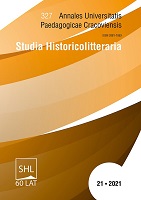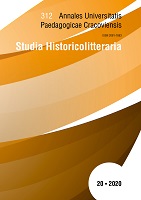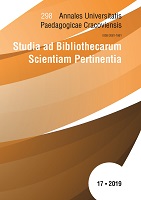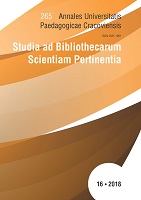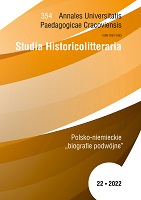
Das schlesische Aschenputtel als Romanfigur...: ein Beitrag zu einer deutsch-polnischen „Doppelbiographie“
The subject of this article is the Polish-German “double biography” of Countess Joanna von Schaffgotsch as portrayed in the novel Zink wird Gold by Georg Zivier and Hans Nowak and in Gustaw Morcinek’s Pokład Joanny. The comparative analysis focuses on the dominant narrative threads and the approaches to represent this historical figure, with the portrayal of the countess as the “Silesian Cinderella” existing as a point of reference in the public consciousness. The analyses conducted in this context lead to the conclusion that Nowak/Zivier’s biography of the countess generally corresponds to historical truth and is realistic in this sense, while the ideological aspect dominates in Morcinek’s narration. The two ‘biographies’ do not take into account the regional specificity of the Countess figure.
More...
